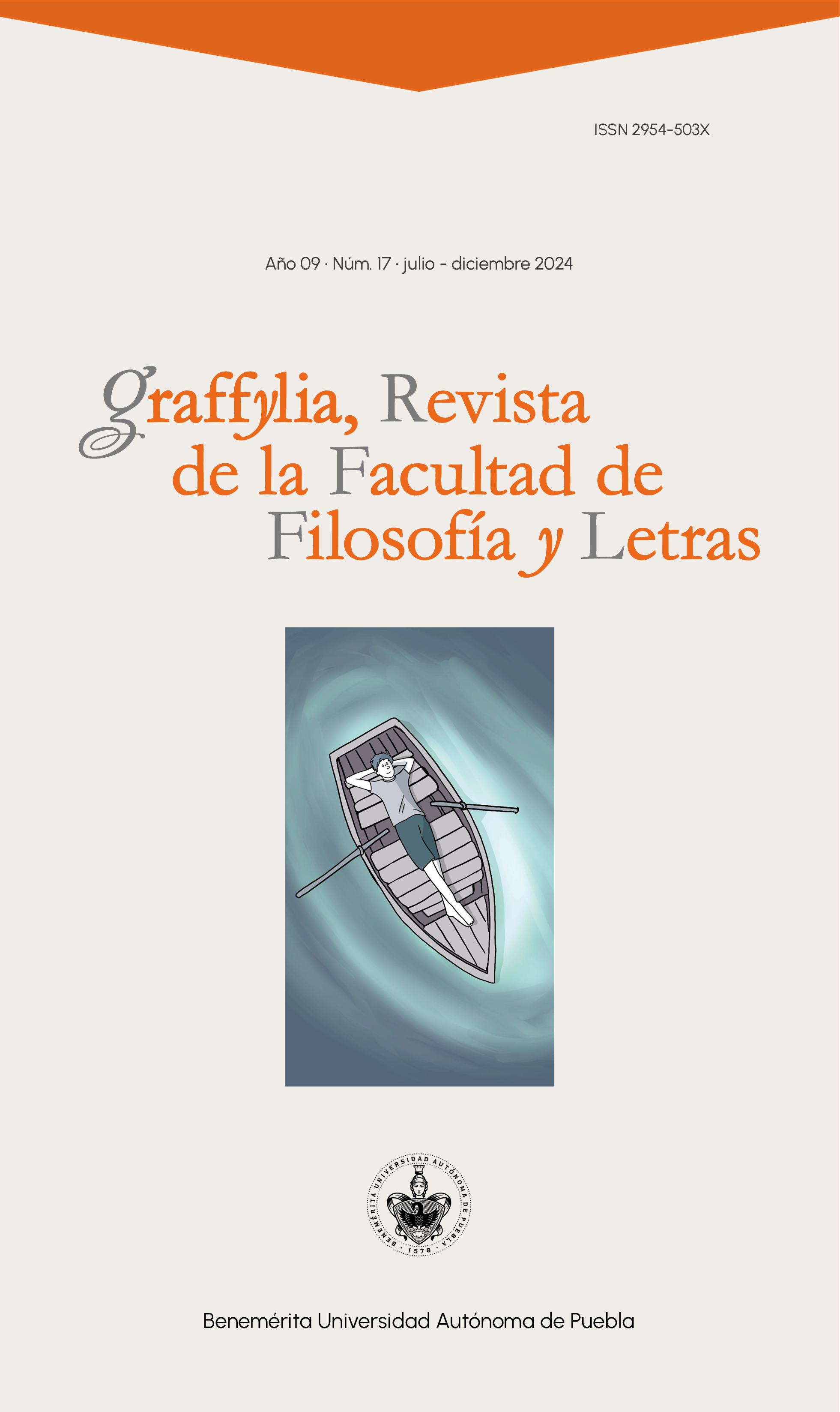Consecuencias de la reputación: El poder de las percepciones
Palabras clave:
reputación, consecuencias, ciencias sociales, filosofíaResumen
Este manuscrito propone una reflexión crítica sobre las consecuencias de la reputación como constructo, desde un enfoque de las ciencias sociales y humanidades. Se exploran las principales consecuencias organizacionales, económicas, psicológicas y conductuales. Adicionalmente, se revisa y discute el papel de las percepciones en la construcción reputacional, así como la dinámica del lenguaje, los hechos, y los elementos dependientes e independientes en la definición de la reputación. Finalmente, se exhorta a tratar este tema de relevante importancia social desde una perspectiva filosófica.
Citas
Allport, G. W. (1937). Personality: A psychological interpretation. New York: Holt.
Anderson, C., y Shirako, A. (2008). Are individuals’ reputations related to their history of behavior? Journal of Personality and Social Psychology, 94(2), pp. 320–333. https://doi.org/10.1037/0022-3514.94.2.320
Cabrera-Gala, R. (2024). Gestión de la Reputación Personal en las Pymes De Puebla (1a ed.). Lambda.
Cabrera-Gala, R., Carreón-Nava, L., Valencia-Cuevas, H., y Rivera-Sosa, L. (2021). Application of periodic review inventories model in a typical Mexican food company. Acta Logistica, 8(1), pp. 27–36. https://doi.org/10.22306/al.v8i1.199
Cabrera-Gala, R., Carrillo Durán, M., Sánchez Baltasar, L., y Olivera Pérez, E. (2023). La construcción de la reputación personal de los colaboradores en las organizaciones. AACINI - Revista Internacional De Ingeniería Industrial, (6). Recuperado a partir de http://www3.fi.mdp.edu.ar/otec/revista/index.php/AACINI-RIII/article/view/58
Cabrera-Gala, R., y Cavazos Arroyo, J. (2023). La integridad académica del profesor: el camino hacia una reputación positiva. AyAmp;H Revista De Artes, Humanidades Y Ciencias Sociales, (17), pp. 50–82. Recuperado a partir de https://revistas.upaep.mx/index.php/ayh/article/view/293
Carrillo-Durán, M. V., Cabrera-Gala, R., y Sánchez-Baltasar, L. B. (2023). What is known about personal reputation? A systematic literature review. Heliyon, 9(5). https://doi.org/10.1016/j.heliyon.2023.e15680
Cronbach, L. J., y Meehl, P. E. (1955). Construct validity in psychological tests. Psychological Bulletin, 52(4), pp. 281–302. https://doi.org/10.1037/h0040957
Fang, L., y Yasuda, A. (2009). The Effectiveness of Reputation as a Disciplinary Mechanism in Sell-Side Research. Review Of Financial Studies, 22(9), pp. 3735-3777. https://doi.org/ 10.1093/rfs/hhn116.
Fauth, B., Göllner, R., Lenske, G., Praetorius, A.-K., y Wagner, W. (2020). Who sees what? Conceptual considerations on the measurement of teaching quality from diferent perspectives. Zeitschrift Für Pädagogik, 66, pp. 138–155.
Foreman, P. O., Whetten, D. A., y Mackey, A. (2012). An identity-based view of reputation, image, and legitimacy: Clarifications and distinctions among related constructs. Oxford Handbooks Online. https://doi.org/10.1093/oxfordhb/9780199596706.013.0009
Grewal, D., Krishnan, R., Baker, J., y Borin, N. (1998). The effect of store name, brand name, and price discounts on consumers' evaluationsand purchase intentions. Journal of Retailing, 74(3), pp. 331-352. https://doi.org/10.1016/S0022- 4359(99)80099-2
Hall, R. (1992). The strategic analysis of intangible resources. Strategic Management Journal, 13(2), pp. 135–144. https://doi.org/10.1002/smj.4250130205
Harris, L., y Rae, A. (2011). Building a personal brand through social networking. Journal Of Business Strategy, 32(5), pp. 14-21. https://doi.org/10.1108/02756661111165435
Harvey, W. S., Morris, T., y Müller Santos, M. (2017). Reputation and identity conflict in management consulting. Human Relations; Studies towards the Integration of the Social Sciences, 70(1), pp. 92–118. https://doi.org/10.1177/0018726716641747
Jäger, U. P., y Schröer, A. (2014). Integrated organizational identity: A definition of hybrid organizations and a research agenda. VOLUNTAS International Journal of Voluntary and Nonprofit Organizations, 25(5), pp. 1281–1306. https://doi.org/10.1007/s11266-013-9386-1
Jazaieri, H., Logli Allison, M., Campos, B., Young, R. C., y Keltner, D. (2019). Content, structure, and dynamics of personal reputation: The role of trust and status potential within social networks. Group Processes y Intergroup Relations: GPIR, 22(7), pp. 964–983. https://doi.org/10.1177/1368430218806056
Leimgruber, K., Shaw, A., Santos, L., y Olson, K. (2012). Young Children Are More Generous When Others Are Aware of Their Actions. Plos ONE, 7(10), e48292. https://doi.org/ 10.1371/journal.pone.0048292
Mauri, A., Minazzi, R., Nieto-García, M., y Viglia, G. (2018). Humanize your business. The role of personal reputation in the sharing economy. International Journal Of Hospitality Management, 73(1), pp. 36-43. https://doi.org/10.1016/j.ijhm.2018.01.017
McAbee, S. T., y Connelly, B. S. (2016). A multi-rater framework for studying personality: The trait-reputation-identity model. Psychological Review, 123(5), pp. 569–591. https://doi.org/10.1037/rev0000035
Mehra, A., Dixon, A., Brass, D., y Robertson, B. (2006). The Social Network Ties of Group Leaders: Implications for Group Performance and Leader Reputation. Organization Science, 17(1), pp. 64-79. https://doi.org/10.1287/orsc.1050.0158
Milgrom, P., y Roberts, J. (1992). Economics, organizations, and management. Englewood Cliffs, NJ: Prentice-Hall.
Miranda, S. y Miguel, A. (2022). Linking Corporate Social Responsibility, Brand Activism, and Corporate Reputation: The Portuguese Case. In M. Carrillo-Durán y M. Pérez Pulido (Eds.), Cases on Developing Effective Research Plans for Communications and Information Science, pp. 289-311. IGI Global. https://doi.org/10.4018/978-1-6684-4523-5.ch015
Neves, P., y Story, J. (2015). Ethical leadership and reputation: Combined indirect effects on organizational deviance. Journal of Business Ethics, 127(1), pp. 165–176. https://doi.org/10.1007/s10551-013-1997-3
Pfeffer, J. (1992). Managing with power: Politics and influence in organizations. Boston: Harvard Business School Press.
Ramirez-Barrera, A., y Rojas-Berrio, S. (2024). A view of agile organizations: bibliometric analysis. Dyna, 91(231), pp. 9–15. https://doi.org/10.15446/dyna.v91n231.109461
Ranft, A., Zinko R., Ferris G.R., y Buckley M.R. (2006). Marketing the image of management: The costs and benefits of CEO reputation. Human Resource Management International Digest, 15(1). doi: 10.1108/hrmid.2007.04415aad.001
Treviño, L. K., Hartman, L. P., y Brown, M. (2000). Moral person and moral manager: How executives develop a reputation for ethical leadership. California Management Review, 42(4), pp. 128–142. https://doi.org/10.2307/41166057
Whitmeyer, J. M. (2000). Effects of positive reputation systems. Social Science Research, 29(2), pp. 188–207. https://doi.org/10.1006/ssre.1999.0663
Wilson, R. (1985). Reputations in games and Markets. Game-Theoretic Models of Bargaining, pp. 27–62. https://doi.org/10.1017/cbo9780511528309.004
Zinko, R., Ferris, G., Blass, F., y Laird, M. (2007). Toward a theory of reputation in organizations. Research in Personnel and Human Resources Management, 26, pp. 163–204. https://doi.org/10.1016/s0742-7301(07)26004-9
Zinko, R., Gentry, W. A., y Laird, M. D. (2016). A development of the dimensions of personal reputation in organizations. International Journal of Organizational Analysis, 24(4), pp. 634–649. https://doi.org/10.1108/ijoa-04-2015-0854
Zinko, R., y Rubin, M. (2015). Personal reputation and the organization. Journal of Management y Organization, 21(2), pp. 217-236. https://doi.org/10.1017/jmo.2014.76
Zinko, R., Tuchtan, C., Hunt, J., Meurs, J., Furner, C., y Prati, L. M. (2017). Gossip: a channel for the development of personal reputation. International Journal of Organizational Analysis, 25(3), pp. 516–535. https://doi.org/10.1108/ijoa-07-2016-1041



